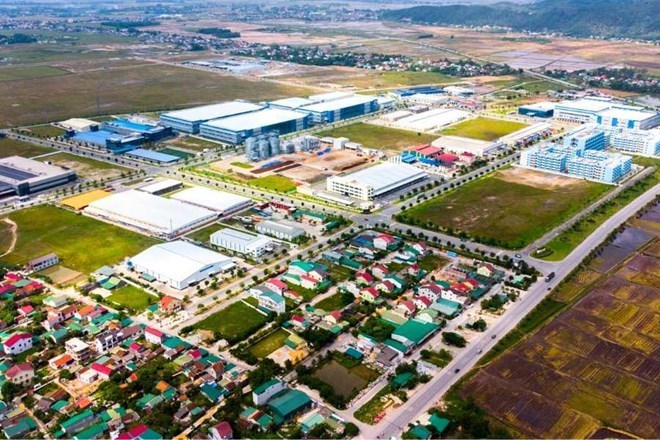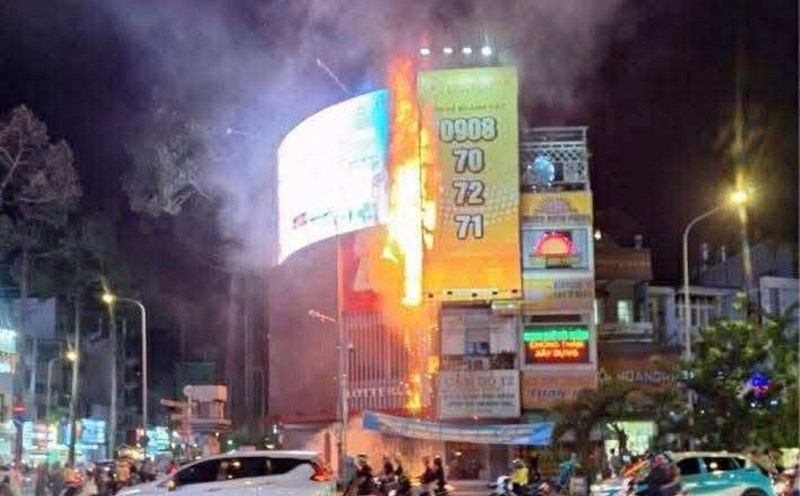New problem for industrial real estate tenants
According to Savills' Global Occupier Markets spotlight 2025 survey, more than 80% of tenants in 54 key markets said they are delaying their decision to lease industrial real estate due to concerns about political and economic risks. Enterprises signing lease contracts during this period tend to prioritize flexible options in terms of time, expansion terms and early termination rights.
This shift comes from many systematic factors, including changes in tariff policies, increased trade tensions, currency fluctuations and other risks such as cyber attacks on logistics infrastructure or extreme natural disasters that disrupt transportation.
Not only stopping at rental decisions, many businesses are delaying capital investment plans. Especially in Asia - Pacific, Savills' research shows that 40% of tenants in this region have temporarily suspended or adjusted investment projects in industrial real estate due to geopolitical uncertainties. This partly shows the reality that rental and investment decisions are increasingly associated with a comprehensive risk response strategy.
In that context, Vietnam is emerging as an attractive destination. With political stability, strategic location in the center of Southeast Asia, competitive labor costs, deep integration into the global supply chain and commitment to improving infrastructure, Vietnam is largely meeting the criteria of the new generation of industrial tenants.
Mr. Thomas Rooney - Deputy Director, Savills Vietnam Industrial Real Estate Service - commented: "The Vietnamese market is recording clear shifts and similarities with the world trend in rental demand, as evidenced by the fact that tenants are prioritizing flexible, economical and sustainable factors. strateggies such as China + 1 and Friend-shoring are expected to bring many practical benefits to Vietnam, especially in attracting foreign direct investment and increasing demand for modern industrial spaces.
This trend will also promote the development of domestic supply chains, thereby improving competitiveness and creating momentum for innovation in the entire industry".

From a strategic destination to a sustainable industrial center
Macro-map indicators also further strengthen Vietnam's appeal. Data recently released by the Statistics Office (Ministry of Finance) shows that in the first 6 months of 2025, the added value of the entire Vietnamese industry increased by 8.07%. This is the second highest increase in the period of 2020 - 2025, after only 2022. The main driving force of the economy is the processing and manufacturing industry, which also recorded growth of up to 10.11%, contributing almost all of the growth of the entire industry.
The Index of Industrial Production (IIP) also increased by 9.2% in the first half of 2025. Of which, the processing and manufacturing industry increased by 11.1%, the water supply and waste treatment industry increased by 11.3%. These figures not only reflect a strong recovery but also show that Vietnam's industry is expanding in scale and complexity, ready to welcome new investors.
Mr. Thomas Rooney assessed: All of these factors are clear evidence of Vietnam's industrial power and show that Vietnam is increasingly affirming its position as a leading country in industrial real estate. At the same time, it also reflects the rapid growth rate of the economy".
Vietnam has advantages, but to turn advantages into sustainable results, it needs a consistent strategy and coordination between the public and private sectors.
Mr. Thomas Rooney concluded: Upgrading infrastructure, improving legal processes and promoting green building standards are key factors for Vietnam to maintain its attractiveness in the eyes of modern industrial investors. At the same time, challenges such as limited land funds, high construction costs and the need to ensure reasonable rental prices also need to be resolved synchronously. If focusing on innovation and sustainable development, Vietnam can completely affirm its position as an emerging industrial center of the region, continuing to attract quality capital flows and promote long-term growth".











